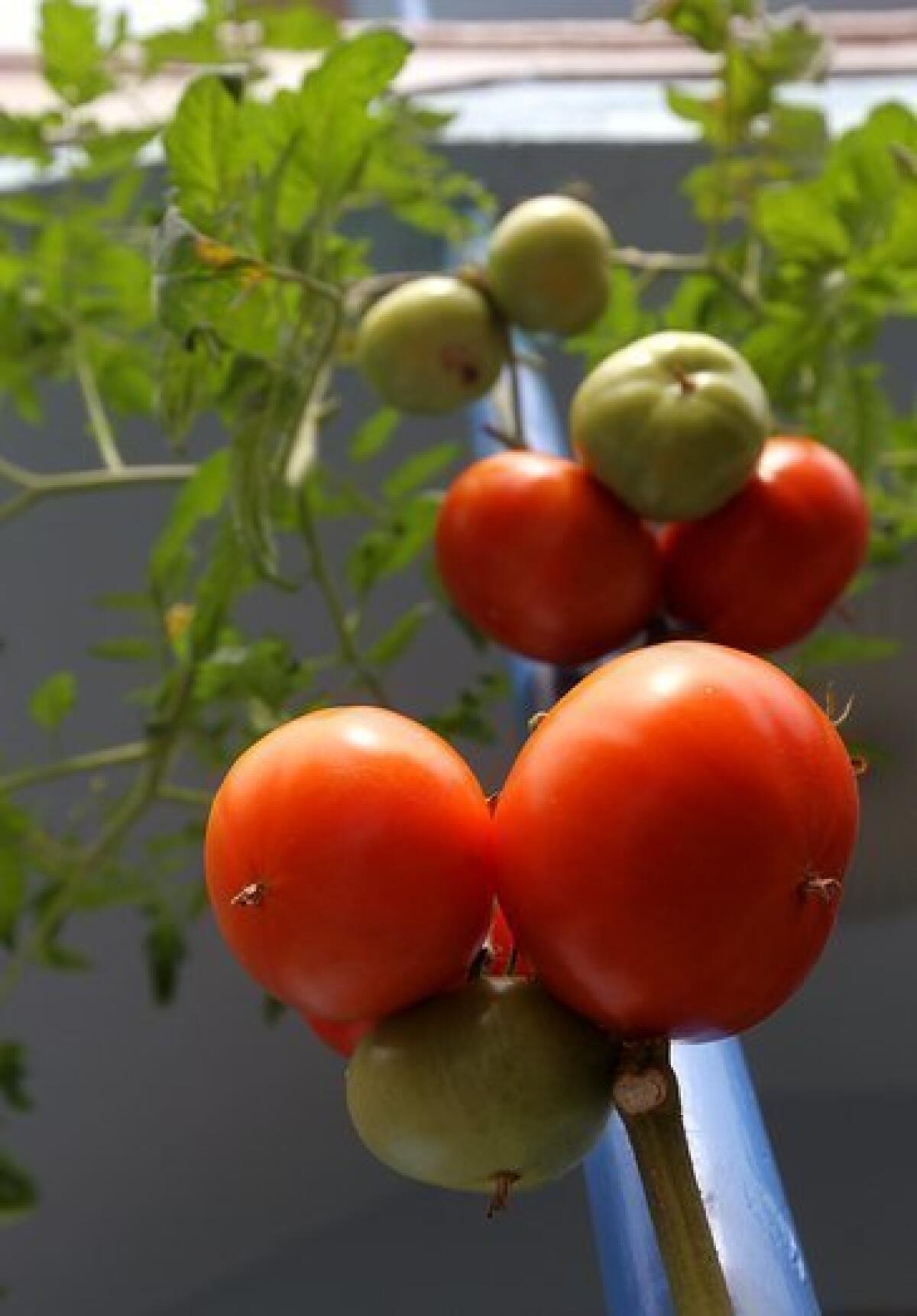Genetically engineered tomato mimics good cholesterol

- Share via
Researchers at UCLA have genetically engineered tomatoes that, when fed to mice, mimic the beneficial qualities of good cholesterol, according to a new study.
In a paper published Tuesday in the Journal of Lipid Research, authors used bacteria to insert genes into the cells of tomato plants, so that they would produce a peptide that mimics the actions of HDL, or “good” cholesterol.
Later generations of those genetically engineered tomatoes were frozen, ground up and then fed to female mice who were themselves bred to be highly susceptible to LDL, or “bad” cholesterol.
Normally, the mice would quickly develop inflammation and atherosclerosis when fed a high-fat diet. However, mice who received the peptide-enhanced tomatoes as part of their diet had significantly lower levels of inflammation and less plaque in their arteries, according to senior author Dr. Alan Fogelman, director of atherosclerosis research at the David Geffen School of Medicine.
The mice were also dissected and examined. To the surprise of researchers, the intact peptide was found in the animals’ small intestine, not in their blood.
“It seems likely that the mechanism of action of the peptide-enhanced tomatoes involves altering lipid metabolism in the intestine, which positively impacts cholesterol,” wrote Srinivasa Reddy, a co-author and UCLA professor of medicine and of molecular and medical pharmacology.
The peptide involved in the study was 6F, which mimics the actions of apoA-1, the main protein in high-density lipoprotein, or HDL.
Despite the experiment’s success, do not expect to find such genetically engineered tomatoes in the supermarket anytime soon. Researchers are still trying to determine exactly how the peptide functions in living animals.
“To our knowledge this is the first report of transgenically expressing a peptide in a fruit that when fed to mice results in the anti-inflammatory properties described here,” authors wrote. “These studies leave many questions unanswered.”
Return to Booster Shots blog.
Follow me on Twitter @montemorin




